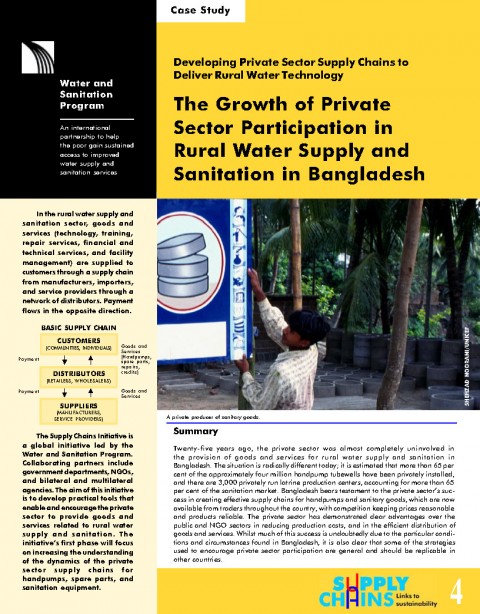The Growth of Private Sector Participation in Rural Water Supply and Sanitation in Bangladesh - Developing Private Sector Supply Chains to Deliver Rural Water Technology
Robinson, A.; Ajay, P. (2000)

Published in: 2000
Publisher:
WSP
Author:
Robinson, A.; Ajay, P.
Uploaded by:
SuSanA secretariat
Partner profile:
common upload
5238 Views
24 Downloads
Location of library entry
Content - Summary
Twenty-five years ago, the private sector was almost completely uninvolved in the provision of goods and services for rural water supply and sanitation in Bangladesh. The situation is radically different today; it is estimated that more than 65 per cent of the approximately four million handpump tubewells have been privately installed, and there are 3,000 privately run latrine production centers, accounting for more than 65 per cent of the sanitation market. Bangladesh bears testament to the private sector’s success in creating effective supply chains for handpumps and sanitary goods, which are now available from traders throughout the country, with competition keeping prices reasonable and products reliable. The private sector has demonstrated clear advantages over the public and NGO sectors in reducing production costs, and in the efficient distribution of goods and services. Whilst much of this success is undoubtedly due to the particular conditions and circumstances found in Bangladesh, it is also clear that some of the strategies used to encourage private sector participation are general and should be replicable in other countries.
Bibliographic information
Robinson, A.; Ajay, P. (2000). The Growth of Private Sector Participation in Rural Water Supply and Sanitation in Bangladesh - Developing Private Sector Supply Chains to Deliver Rural Water Technology. WSP
Filter tags
East Asia & Pacific English Rural














